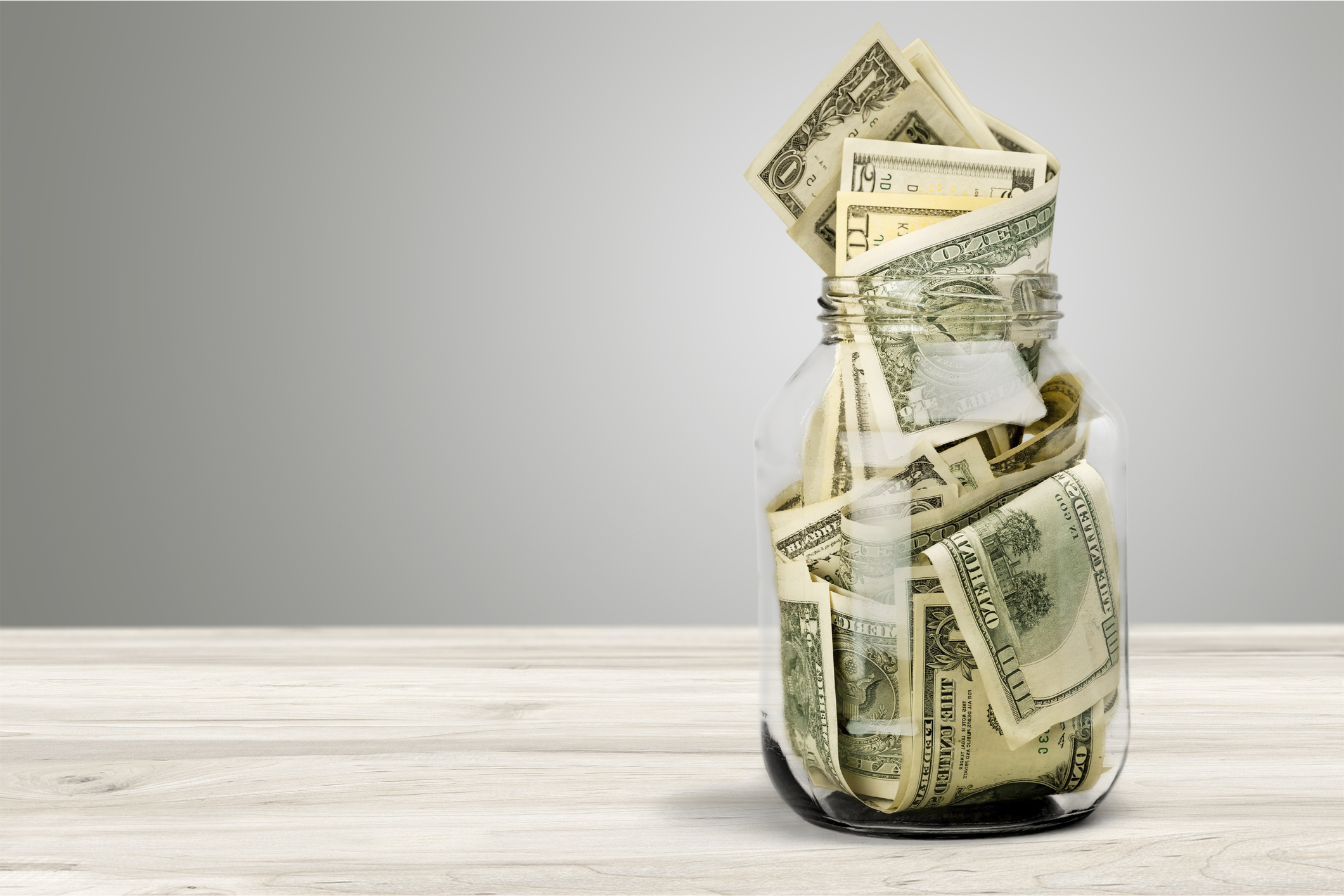A dollar saved is a dollar earned.
And while there are no quick fixes to managing money, financial expert Kimberley Uzzell suggests following some simple steps can make a huge difference.
“It’s never too late to change your mindset, your spending habits or your financial future,” The Money Movement founder told Newsweek.
“Savings doesn’t have to be difficult, or boring. Sometimes all you need is to think outside the box a little, and with the positive encouragement and ideas from those around you, the possibilities are endless!”
Jon Ostler, CEO at the personal comparison site Finder.com, agrees and suggests the COVID-19 crisis could be an opportunity to reassess your finances.
He said: “In the wake of a post-pandemic world, some people’s disposable income has started to pile up on the sidelines.
“This has caused many to examine their finances a little more closely, thinking more about spending habits, savings, and future financial goals.”
Read on to discover experts’ ideas for saving money the easy way by savvy shopping and slashing costs.
1. Set a Time Limit When Shopping

gpointstudio/Getty Images
Becca Powers, an executive at Fortune 500 tech companies, suggests getting “creative” can cut costs when shopping.
She said: “There are Target shopping memes for a reason. Saying things like, ‘I went to Target for a loaf of bread and ended up redesigning my guest room.’
“People go to the store for a couple of items and end up staying and shopping until their cart is full.
“Did you know stores are designed to keep you shopping? Especially, stores that are both grocery and retail. Set a time limit on yourself to prevent you from over-shopping.”
2. Eliminate Shopping As a Hobby
Brianna Firestone, founder of money management site The School of Betty, suggests this “emotional-based ” shopping hack.
She said: “Boredom can be a big catalyst for shopping. We live in a fast-paced world and having moments of stillness can feel uncomfortable.
“So much so that many individuals love to create lists of errands they need to run just to stay busy.
“Simply asking yourself if you actually need the items or if you are bored will do wonders to redirect your attention and energy.
“You will be surprised by how much free time you discover and how different your bank account will look.”
3. Shop Secondhand
Eirik Rime, co-founder and CEO of sustainable Norwegian buying/reselling platform and social marketplace Tise, suggest how secondhand fashion can “save both money and the environment.”
He said: “Tons of ‘secondhand’ items being resold are brand new, less expensive than retail prices, and come with the added bonus of price negotiation, making shopping secondhand an affordable option for most everyone.
“Using online secondhand platforms, frequenting your local thrift stores, and following sellers on social platforms, are great ways to make thrifting exciting and accessible.
“With organic fabrics, measurements (for the perfect fit) and popular brands all regularly available, you’ll find yourself ditching firsthand shopping in no time.”
4. Harness Budgeting Apps

Ridofranz/Getty Images
Finder.com’s Jon Ostler believes you can use the spending insights and analytics on budgeting apps to quickly review past statements and spot any bad spending habits and pointless subscriptions.
He said: “Once you’ve cut those out, see if you can pick up the phone to negotiate better deals from your current providers or check what deals competitors are offering.
“You can save literally $100s over the course of the year if you do this for your cellphone, broadband, energy and insurance providers.”
5. Go Freelance
Steve Taklalsingh, UK MD at business banking app, Amaiz, believes there are plenty of opportunities to save money when working freelance.
He said: “Firstly: consolidate your accounting and payment software. There are brilliant apps out there that charge a minimal fee each month which lets you automate your invoicing and receipt management.
“One of the biggest problems that freelancers face is chasing clients for money, and making sure they invoice on time. Get your finances in order.
“Choose a business banking app that lets you invoice straight away and tells you when you’ve been paid so you are always aware of the money you have or haven’t been paid. You’ll also save valuable time spent on boring admin with the automatic categorisation of your expenses and the space to instantly store digital copies of receipts.
“Secondly: Pay attention to your social media presence. Make the most of free marketing tools such as Instagram, Facebook, and TikTok to build up your profile, as well as website builder platforms.
“Build a page and update it regularly. Start a blog to help establish yourself as an industry expert. There is so much free advice online as to how to do this so do your research.
“However, it is worth calling on an expert once your business is up and running as you’ll have lots of other things to focus on.
“Thirdly, try reciprocal partnerships with other experts in their field; can you offer your skill in exchange for theirs, therefore saving you (and them!) money?
“Freelancers in the same boat might be only too happy to offer their services.”
6. Use a Cash-Back Shopping Portal

Ridofranz/Getty Images
Investment adviser and lifelaidout founder Roger Ma believes there are significant savings to be made with this simple online shopping hack.
He said: “Use a cash-back shopping portal, like Rakuten or Mr. Rebates, which will allow you to save 1 to 30 percent off nearly everything you buy online by simply adding one step to your shopping process.
“To take advantage of this strategy, sign up for one or more cash-back shopping portals.
“Then the next time you want to buy something online, go to your preferred cash-back shopping portal, click through to the store’s website through the portal, and then buy your item as you normally would—and that’s all you need to do to earn cash-back savings.”
7. Treat Your Savings Like a Non-Negotiable Bill
My Money Movement’s Kimberley Uzzell suggests setting up an automated regular payment to a savings or investment account can help people paying utility bills and taxes automatically each month.
She said: “You wouldn’t dream of forfeiting on your Electricity bill or Cellphone payment, so consider your savings in the same way – non-negotiable and not to be cancelled!”
8. Switch Cell Phone Carriers

Chainarong Prasertthai/Getty Images
Best-selling author, financial expert and Ramsey Personality Rachel Cruze suggest this one switch could save you more than half of your monthly bill—but you have got to shop around.
She said: “There are carriers out there – some familiar names, some not.
“But they use the same networks as the bigger names. Companies like Mint Mobile, Tello, Red Pocket, Ultra Mobile, Airvoice, and Yahoo Mobile are anywhere from $10 to $40 a month.
“Remember, some of these plans are limited, but some include unlimited calls, texts, and even data so ask good questions while you shop around.”
9. The $1 Rule
Bernadette Joy, CEO of Crush Your Money Goals suggest this “simple” money-saving tip.
She said: “If an item comes out to one dollar or less per use, I give myself the green light to buy it. This rule works especially well when applied to my weak spots: clothing, accessories and home goods.
“For example, I recently purchased a pair of classic all-white sneakers on clearance for $18. Before buying them, I calculated that I would probably wear them once a week for a year, or at least 52 times.
“The rule was right: In the last two months, I’ve already worn them far more than 18 times, making them less than $1 per wear.
“But during the same shopping trip, I found a beautiful winter jacket for 75% off, marked down from $300 to $75. While I was lured in by the big discount and brand name, I stopped to do the math.
“I considered the number of cold days and other jackets I already had in rotation, and I couldn’t see myself wearing that jacket 75 times — or every single day for two and a half months — and therefore, it wasn’t worth the money. I walked away and left it on the rack.
“The $1 rule gives yourself permission to still buy things you use frequently, while preventing impulse purchases that might seem like a good deal.
“It also encourages spending more on high-quality, sustainable items that will last. I’ve moved almost entirely away from fast fashion because even a $5 shirt that I might only wear once breaks the $1 rule.”
10. Batch Cooking
Lisa Dickson, founder of a company called Caseron Accounting suggests her “favourite” personal profit and fitness hack.
She said: “Whenever I cook, I always try and make enough so I can freeze an extra portion.
“Super helpful to have something you can reach for when you are tired and hungry and tempted to pick up the phone and order a take out, don’t be tempted by that unnecessary spend.
“Plus it’s almost always going to be better for you than what you might have ordered so checks the box for your fitness goal at the same time!”
11. The S’s to Combat Food Waste

Getty Images
Tessa Clarke from the neighbourhood sharing app OLIO, shares the five Ss that can help be more planet-positive while saving money.
She said: “Shop with a list—and even better, make sure that list only includes items from your weekly meal plan
“Store your food correctly–from keeping tomatoes out of the fridge, keeping potatoes and onions separate and storing herbs in water–make sure you know how best to store every item
“Serve smaller portion sizes–using smaller plates is an easy hack.
“Save your leftovers–they’re often tastier the next day too
“Share your spare–simply snap a photo of the food you don’t need and add it to OLIO for your neighbours to collect free of charge.”
12. Split It Before You Get It
Tiffany “The Budgetnista”, financial educator and NYT bestselling author suggest automatically redirecting wages can save money over time.
She said: “Instead of having your full paycheck deposited into your checking account, ask your HR, accounting, or bookkeeping department if they can redirect some of your money into a savings account.
“When you split it before you get it, you don’t have to have the discipline to remember to save. Your employer can do the saving for you.”
13. Save Your Dollar Bills

artisteer/Getty Images
Louis Rix, Co-CEO of car finance marketplace, CarFinance247 suggests this classic money-saving tip.
He said: “Is spare change burning a hole through your pocket? One unusual way that you can save money is to start saving all the dollar bills you get.
“Every time you get change at a cash register, set aside all the singles. If you keep at it every day, the amount you’re able to save could really add up.”
14. Drop the ‘All or Nothing’ Attitude
Behavioral Psychologist at Durham University, Mario Weick teamed up with Atom Bank to suggest how a simple change of attitude can slash unnecessary spending.
He said: “When you’re trying to limit your spending, you can feel like going cold-turkey is the only answer. However, evidence suggests that this ‘all or nothing’ attitude is actually harder to maintain than a split-budget approach.
“Saving some income, while giving oneself a spending allowance really does appear to be the golden formula.”
“A healthy balance between restraint and allowing oneself some pleasure and spontaneity is an optimal strategy to boost happiness.”
“Ahead of Black Friday this year, set yourself a clear goal of how much you can comfortably afford to spend, and create a list of the areas you are happy to spend on.
“From Christmas gifts for the family, to a new electric toothbrush, allowing yourself to spend some of your income means you are less likely to get swept away on the day and end up overspending.”
15. ‘Never Buy a New Car
Matt Fiddes, award-winning mentor and entrepreneur cautions buying a new car is “money down the drain.”
He said: “Buying used, even six months old, will save you tons of cash.
“Car loans can also leave you owing more than what the motor is worth—avoid doing this at all costs and you will save your money significantly.”
16. Compile a List of Necessary Purchases

Chalirmpoj Pimpisarn/Getty Images
Brianna Firestone believes having a logical approach to shopping can generate significant savings over time.
She said: “Have a running list of large items you want to purchase, what they cost, the brand you prefer and what discount would incentivize you to complete the purchase.
“This list is powerful when large sales days pop up (Labor Day, Memorial Day, Black Friday etc.) because you can avoid an unplanned purchase.
“Doing your research ahead of time and price analysis on large items puts you in the best position to take advantage of a deal that feels good to you and can help you avoid making purchases that aren’t in your budget or aren’t what you want/need.”
17. Have a Quarterly Unsubscribe Day
Becca Powers suggests believes calendars make it so simple to set reminders for money-saving housekeeping tasks.
She said: “Retailers are always asking for your email address so they can send promotions to you for you to spend your money.
“You would be surprised to see how much you might save when you dedicate time to unsubscribing from promotional emails that prompt spontaneous and potentially unnecessary spending.”
18. Avoid Temptation to Dip Into Savings
Finder.com’s Jon Ostler emphasises the importance to plan ahead to avoid dipping into your savings no matter how small.
He said: “Curb the temptation by putting money in a savings account that doesn’t have instant access if you don’t think you can keep your hands off it (and you don’t think you will need it for essentials).
“This will eliminate the need to dip into it since it won’t be so easy to access.”
19. Create Meal Plans

RossHelen/Getty Images
Rachel Cruze believes simple planning can cut necessary costs surrounding mealtimes.
She said: “Many of us are spending way too much money eating out at restaurants or having food delivered in.
“The first thing to do is to cut the amount your spending every month on eating out in half.
“This will force you to eat at home and meal prep. Make a plan for each night of the week.
“Now, I’m not the fun police. You can still go out. But if you don’t plan ahead, you’re going to come home from work every night with no idea what to do so you’ll end up getting food to go.”
20. Avoid Money Leaks
Lisa Dickson believes being brutally honest with yourself before making a purchase can quickly save money.
She said: “Every time you are tempted to spend money ask yourself–is this money better spent on this takeout coffee that will be gone in 10 minutes, this subscription I don’t use, this training program I probably won’t finish – or is that money better spent on my Tesla, my holiday, paying off my credit card?
“Be specific – is that money better in their pocket or yours? You’ll be surprised how many times that question can change a spending decision!”




